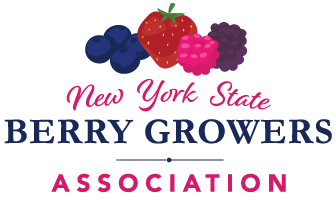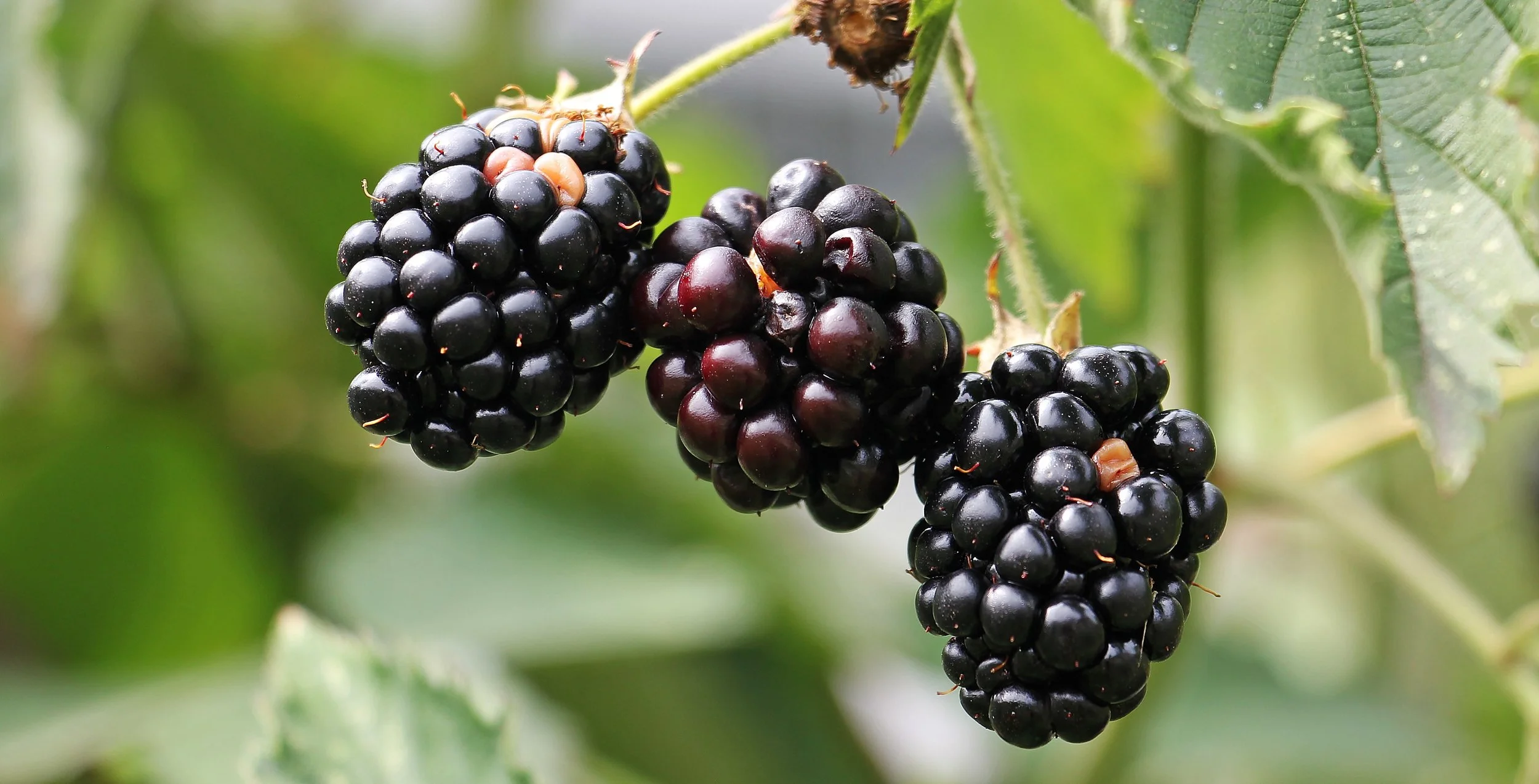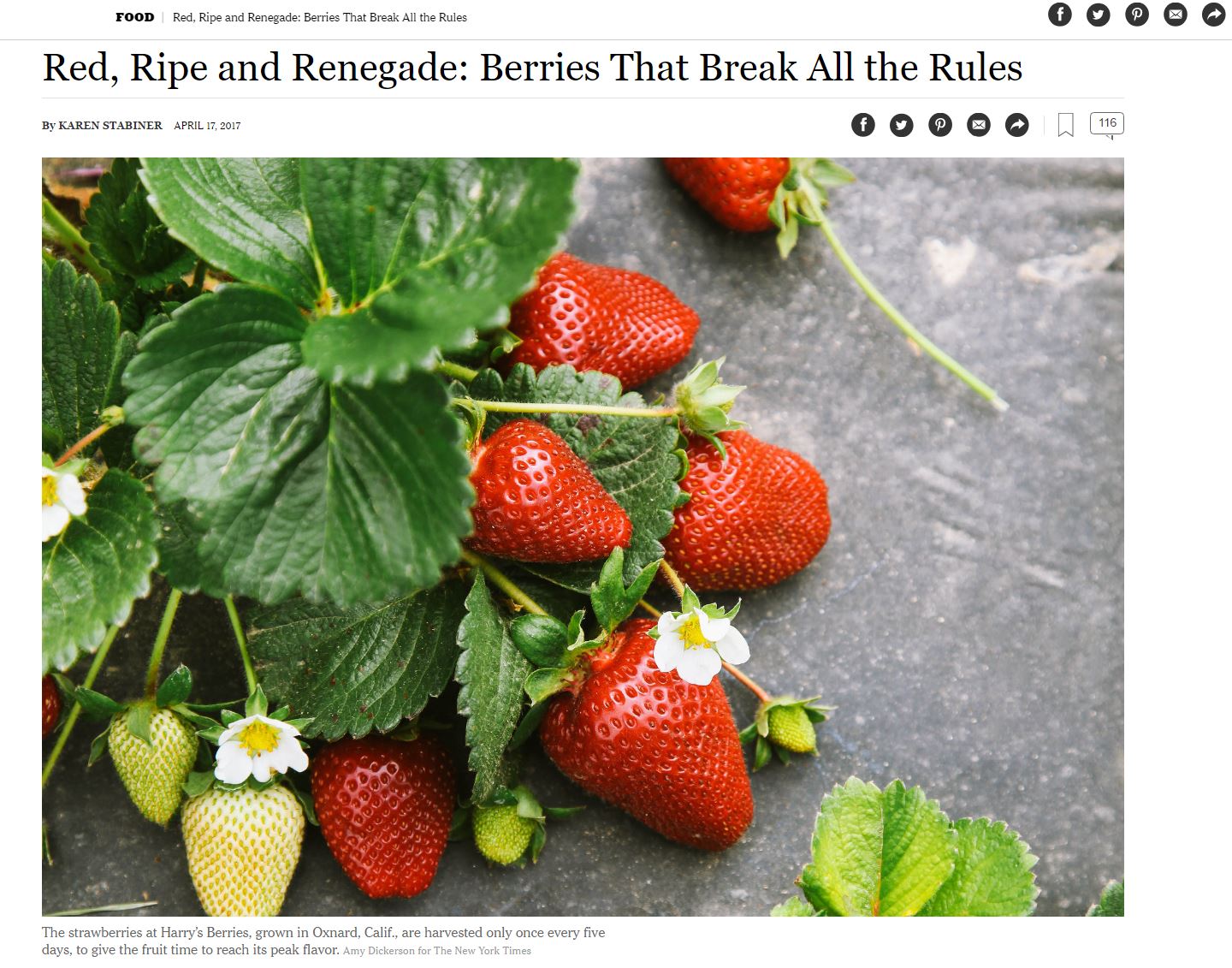Doing "Nearly Everything Wrong":
A West Coast Farm with Northeastern Techniques
We’re always happy to see berries in the news, and we especially like to see stories that praise the growing and harvesting methods New York State growers have been using for decades. That’s why this April 17, 2017, story in the New York Times caught our eye.
The article, about Rick and Molly Gean, owners of the strawberry farm Harry’s Berries, near Los Angeles, touts growers who “do nearly everything wrong, at least according to the gospel of modern commercial berry farming.” The Geans started out with commercial strains of berries but now organically grow Gaviota and Seascape strawberries. They sell 500,000 pounds of berries per year, with 70 percent of their business at farmers’ markets; pints are priced at $8. The article states that Harry’s Berries are the preferred fruits of many West Coast chefs, and even a handful in the Northeast.
What’s most interesting about this article is the spotlight it shines on the Geans’ harvesting, which happens once every five days, to ensure peak ripeness. “Ripeness is all,” proclaims the piece. “When the berries run out, they run out, because the Geans would rather send a customer home empty-handed than with a berry that doesn’t meet their standards.”
While the article doesn’t acknowledge that New York’s independent berry growers have been harvesting only at peak ripeness for generations, this is a great talking point with customers. And while we may not have the advantage of year-round growing in a mild climate, our short season gives us the opportunity to highlight the berries as “limited edition,” available only for a few weeks a year. Keep a copy of the Times article in your farm store or at your market booth, and see if it sparks some important conversation.




